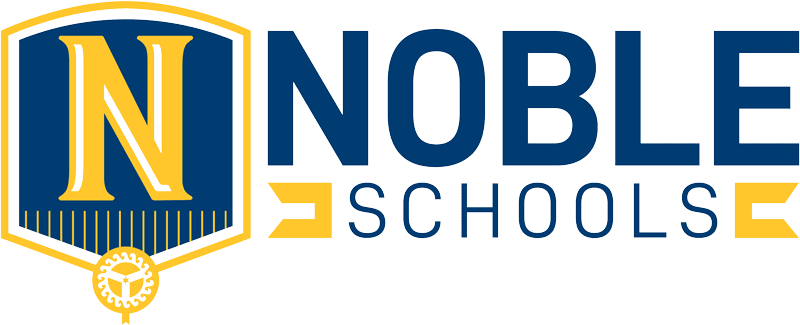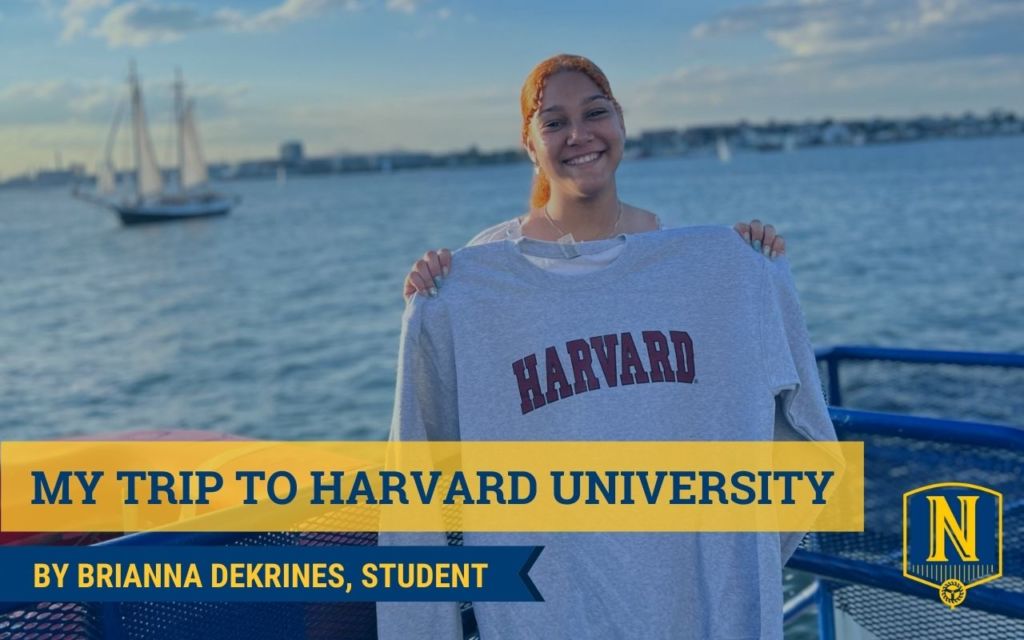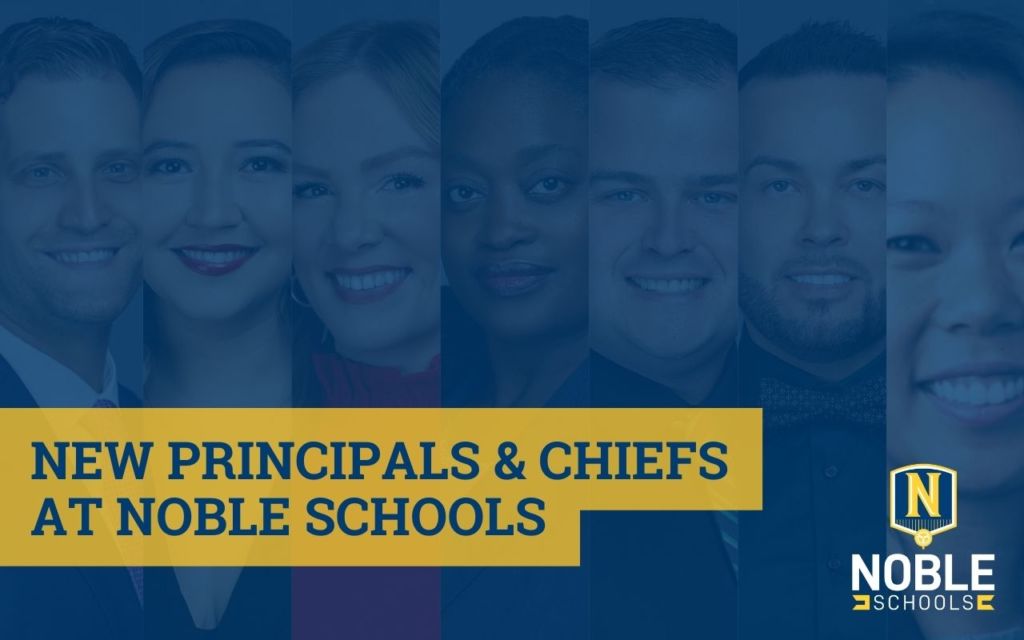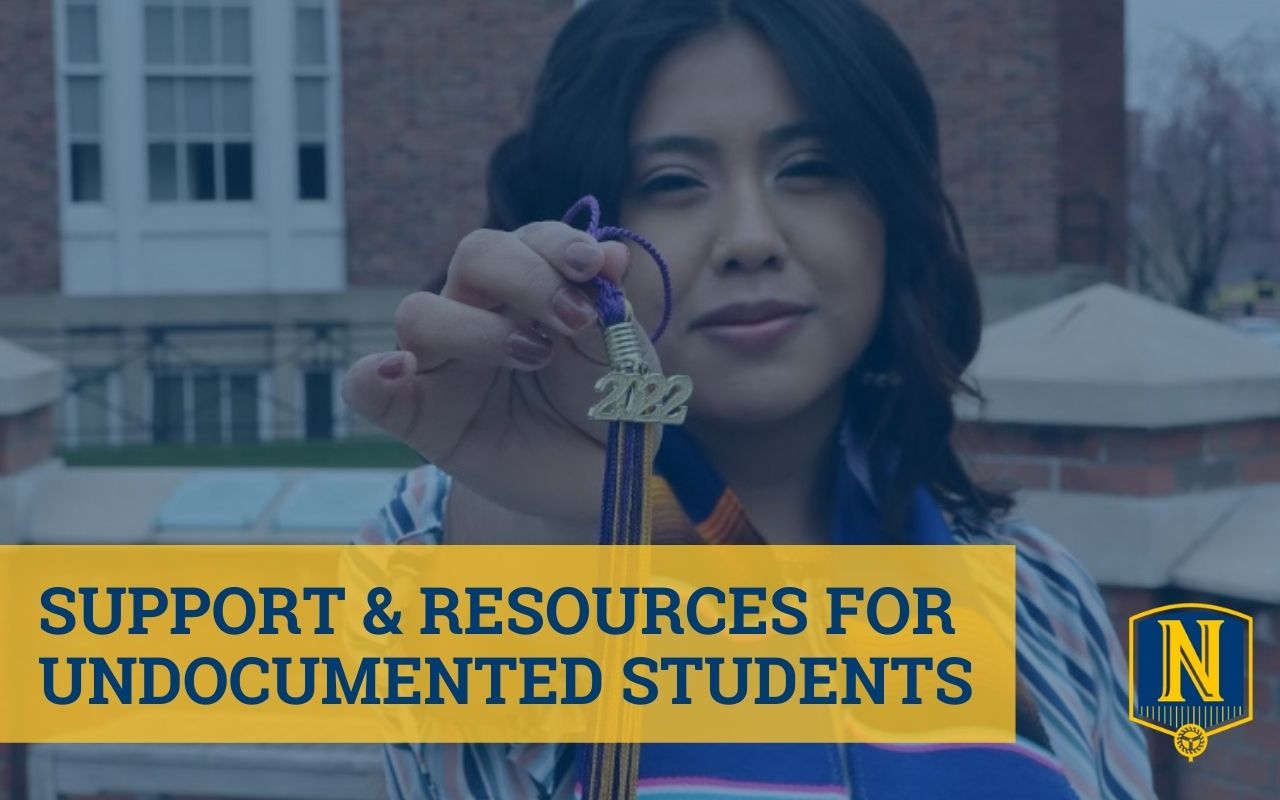
Future prospects for undocumented high school students across the nation are more unstable right now than they have been in the past decade.
Since a Texas federal court declared the Deferred Action for Childhood Arrivals (DACA) unlawful last year, the federal government hasn’t been processing initial applications to DACA, which provides work authorization and protection from deportation for children brought to the U.S. as a child. For many of our undocumented high schoolers who have never applied to DACA before, this means no clear, safe path to higher education or employment.
At Noble Schools, we recognize that our undocumented scholars are some of our most vulnerable students. Supporting them is one of our greatest priorities. Our DREAMer Supports team works with DREAMer liaisons, deans, and college counselors across all 18 of our campuses to help students navigate the unique challenges of being undocumented – from college to employment. When it comes to supporting undocumented students with their college dreams, we are among the best in the country.
Compared to available citywide and national data, Noble’s undocumented students often outperform both their documented and undocumented peers when it comes to college outcomes. From 2003 to this recent school year, Noble graduated over 800 undocumented students. Here’s a brief look at some of the data:
About 3 of 4 undocumented students at Noble Schools immediately enroll in college after graduation.
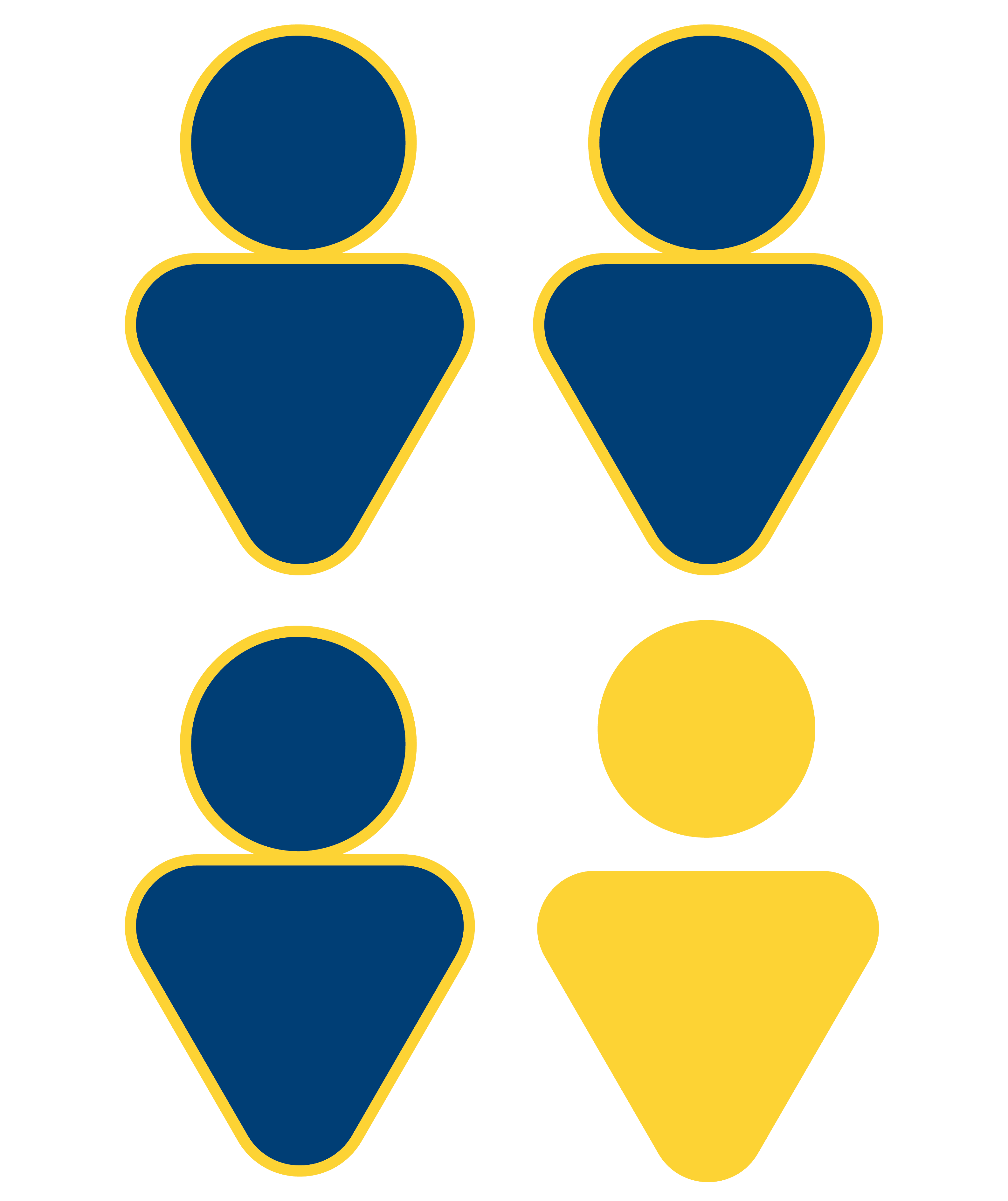
- Since 2015, about three in four (75%) undocumented Noble graduates have immediately enrolled in college after graduation
- This rate is well above the overall college enrollment average of 42% for Chicago Public Schools high school graduates (2015-2020).
- Research indicates that less than 10% of undocumented high school graduates in the U.S go on to enroll in college.
About 60% of Noble’s undocumented graduates from 2015 and 2016 who enrolled in college have completed their bachelor’s degree in five years or less.
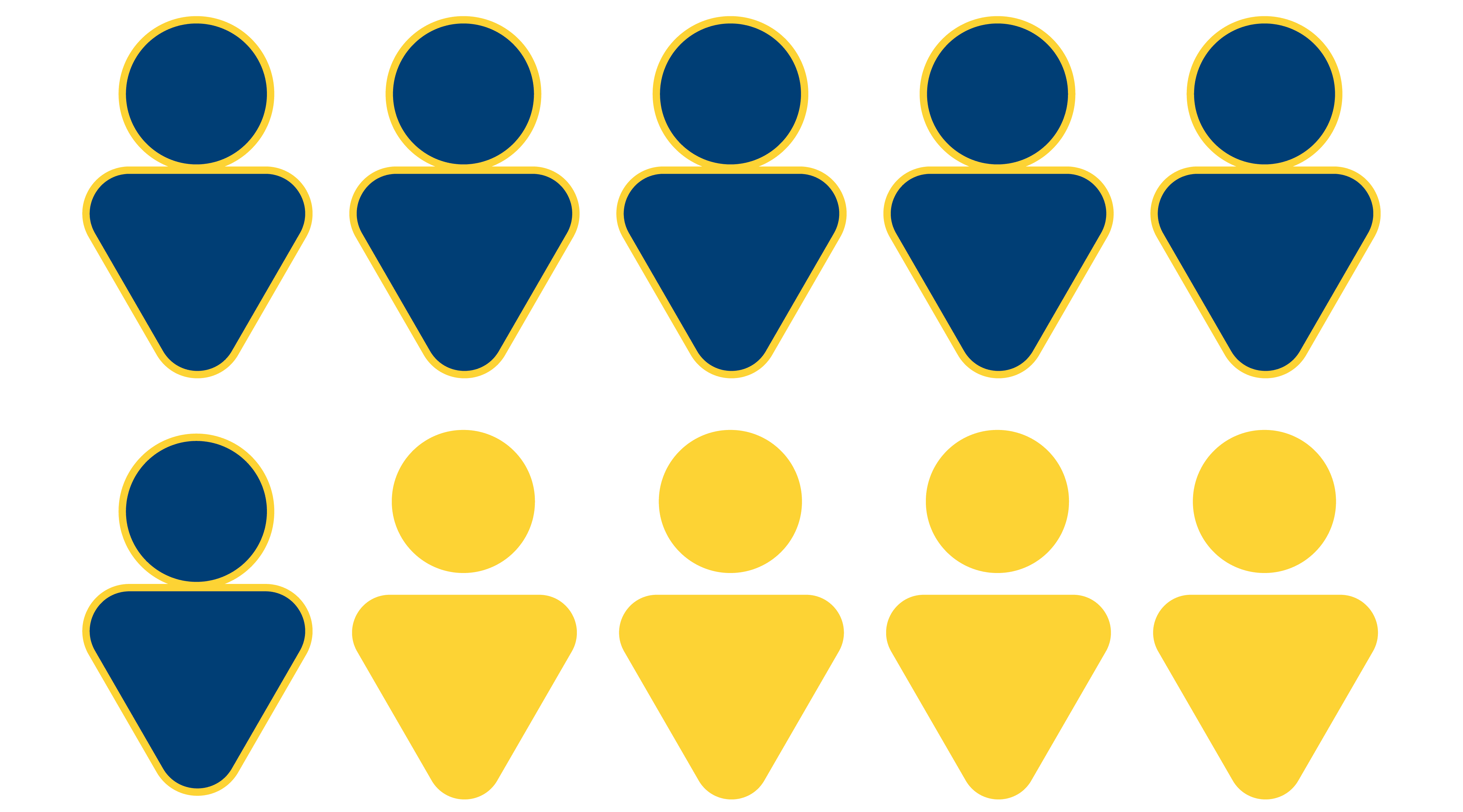
- From both the Noble Class of 2015 and 2016, more than 60% of each year’s undocumented graduates that enrolled in college have finished their bachelor’s degrees in 5 years or less.
- Undocumented students from Noble’s Class of 2017 are on track for the same results.
- This rate outmatches the latest bachelor’s degree completion rate of 50% for all CPS graduates (Class of 2013).
- Research suggests that only about 5% of undocumented students nationally go on to obtain their bachelor’s degrees.
NOBLE’S APPROACH TO SUPPORTING UNDOCUMENTED STUDENTS
“We’re very vocal as an organization about our support to undocumented students,” Luis Gonzalez, the Manager of DREAMer Supports at Noble Schools, said.
Gonzalez leads and supports several college counselors and DREAMer Liaisons across Noble’s campuses to help them support undocumented students. He and Yessica Orduño-Marín, the other member of his team, also work one-on-one with every undocumented senior at Noble.
From senior year to college to employment, Gonzalez and Orduño-Marín are there every step of the way for our undocumented students and alumni.
“Even though these students already have an alumni or college counselor, they also receive direct support from Yessica and myself,” Gonzalez said.
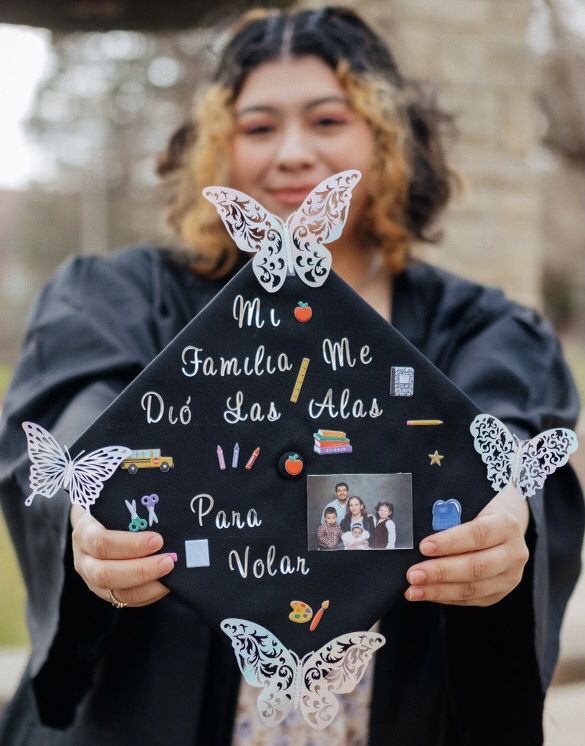
IMG_0816
Here is a list of some of the ways the DREAMER Supports team and their liaisons support Noble students:
- Helping seniors find and apply for accessible scholarships, such as TheDream.US scholarship
- Coaching and mentoring undocumented students regularly – addressing all questions and concerns from school life to personal life
- Partnering with several local and state organizations to help provide wrap-around services to undocumented students such as legal assistance and emotional & mental healthcare
- Keeping students’ families informed about college access and immigration resources
- Building a network of undocumented-friendly organizations to help students get jobs after finishing school
- Working with the Noble Alumni Career Office to provide assistance with post-graduation employment
This is by no means an exhaustive list of all the things the DREAMer Supports team does. More recently, they have also been focusing on promoting visibility for undocumented students at Noble.
Last school year, they ran two main programs to increase visibility: their second annual Undocu Week of Action in the spring and the first year of a network-wide Undocu Club.
They ran online sessions on professional development and self-empowerment for undocumented scholars across Noble and Chicago during the Undocu Week of Action. The Undocu Club traveled between Noble campuses to provide a safe space for undocumented students to meet up and connect with each other and staff with similar experiences like Gonzalez.
“I think our students – because they’re not protected by DACA anymore – feel very vulnerable about their status,” Gonzalez said, “So, I think creating a space where they can share their experience and they can connect with other undocumented students is healthy for them.”
The team still has many ways to grow, though, Gonzalez said. Some of their goals are to continue to grow visibility and community for undocumented scholars on campus, find new pathways to employment for students without DACA, and build out more support for students who want to pursue other ambitious post-secondary pathways outside of college.
“I think the reason why it’s critical that we do this work and that we’re very intentional about providing equitable support to undocumented students is because, at the end of the day, it’s the most vulnerable group of students that we have,” Gonzalez said.
BEING UNDOCUMENTED AT NOBLE
This year, Noble graduated 60 undocumented students. Of those students, 36 received the TheDream.US scholarship – a competitive national scholarship for undocumented students. Just over 1,000 scholars across the nation were awarded the scholarship this year. We talked with four recent Noble graduates who received the scholarship and who are on their way to pursuing their college dreams this fall. Check out their stories and the advice they have for their fellow undocumented students:
THEIR ADVICE TO UNDOCUMENTED STUDENTS
Maria, Hugo, Victoria, and Emy also left some advice for other undocumented students.
Maria: “First, I want to give you all a big hug. And a piece of advice would be, as cliche as it sounds, that you are not alone and there is always a way. Absolutely no one is illegal on stolen land. Advocate for yourselves and defend yourselves. Don’t ever let anyone diminish you based on your status because that’s not who you are. We are so much more than what some of these people try to make us out to be.”
Hugo: “If you believe in something and you have the support system and motivation, you should do it. If you want to go to college, find the resources and the support system that’s gonna help you achieve it because they’re out there.”
Victoria: “Reach out for opportunities. If nobody is there for you, be there for yourself. You may feel like you’re really different, but if anything, you’re different in a good way. You have to do stuff that other people can’t do, and while it makes it harder for you, you know that you did a lot more than other people to get where you are now.”
Emy: “My biggest piece of advice is to appreciate your parents since they did the hard work for you to come here. You never know what type of things they had to overcome just to come here. Even if you have fights with them, always see the positive things in that because you never know what’s going to happen next.”
These stories are a testament to how Noble believes in the potential of every single one of our students and is committed to dismantling barriers to make college access a reality for all.
Apoyo y recursos para estudiantes indocumentados en Noble Schools
Las perspectivas futuras para los estudiantes de secundaria indocumentados en todo el país son más inestables en este momento que en la última década. Desde que un tribunal federal de Texas declaró ilegal la Acción Diferida para los Llegados en la Infancia (DACA, por sus siglas en inglés) el año pasado, el gobierno federal no ha estado procesando las solicitudes iniciales para la DACA, que brinda autorización de trabajo y protección contra la deportación para menores que fueron llevados a los EE. UU. cuando eran niños. Para muchos de nuestros estudiantes de secundaria indocumentados que nunca antes han solicitado la DACA, esto significa que no hay un camino claro hacia la educación superior o el empleo.
En Noble Schools, reconocemos que nuestros estudiantes indocumentados son algunos de nuestros estudiantes más vulnerables, por lo que apoyarlos es una de nuestras mayores prioridades. Nuestro equipo de Apoyo de DREAMer trabaja con los enlaces, decanos y consejeros universitarios de DREAMer en los 18 campus para ayudar a los estudiantes a superar los desafíos únicos de ser indocumentado, desde la universidad hasta el empleo. Cuando se trata de apoyar a los estudiantes indocumentados con sus sueños universitarios, estamos entre los mejores del país.
En comparación con los datos disponibles a nivel nacional y de la ciudad, los estudiantes indocumentados de Noble a menudo superan a sus compañeros documentados e indocumentados en lo que respecta a los resultados universitarios. Desde 2003 hasta este año escolar reciente, Noble graduó a más de 800 estudiantes indocumentados A continuación se proporciona un resumen breve de algunos de los datos:
Alrededor de 3 de 4 estudiantes indocumentados en Noble Schools se inscriben inmediatamente en la universidad después de graduarse.

- Desde 2015, aproximadamente tres de cada cuatro (75%) graduados de Noble indocumentados se han inscrito inmediatamente en la universidad después de graduarse.
- Esta tasa está muy por encima del promedio general de inscripción universitaria del 42% para los graduados de secundaria de las Escuelas Públicas de Chicago (2015-2020)..
- Las investigaciones indican que menos del 10% de los graduados de secundaria indocumentados en los EE. UU. van a matricularse en la universidad..
Alrededor del 60% de los graduados indocumentados de Noble de 2015 y 2016 que se matricularon en la universidad han completado su licenciatura en cinco años o menos.

- Tanto de la Clase Noble de 2015 como de 2016, más del 60% de los graduados indocumentados de cada año que se matricularon en la universidad han terminado sus títulos de licenciatura en 5 años o menos.
- Los estudiantes indocumentados de la clase de 2017 de Noble están en camino de obtener los mismos resultados.
- Esta tasa supera la última tasa de finalización de la licenciatura del 50% para todos los graduados de CPS (Clase de 2013)..
- La investigación sugiere que solo alrededor del 5% de los estudiantes indocumentados a nivel nacional obtienen sus títulos de licenciatura.
Muchos de estos resultados se remontan al trabajo del equipo de Apoyo de DREAMer y su enfoque intensivo de cuatro puntas para apoyar a los estudiantes indocumentados: becas y apoyo financiero, entrenamiento y tutoría, asociación comunitaria y apoyo posterior a la graduación.
El enfoque de Noble para apoyar a los estudiantes indocumentados
“Somos muy elocuentes como organización sobre nuestro apoyo a los estudiantes indocumentados”, dijo Luis Gonzalez, Gerente de Apoyo de DREAMer en Noble Schools.
Gonzalez lidera y apoya a varios consejeros universitarios y Enlaces de DREAMer en los campus de Noble para ayudarlos a apoyar a los estudiantes indocumentados. Él y Yessica Orduño-Marín, la otra integrante su equipo, también trabajan uno a uno con todos los estudiantes del último año indocumentados en Noble.
Desde el último año hasta la universidad y el empleo, Gonzalez y Orduño-Marín están presentes en cada paso del camino para nuestros estudiantes y exalumnos indocumentados.
“Aunque estos estudiantes ya tienen un exalumno o un consejero universitario, también reciben apoyo directo de Yessica y de mí”, afirmó Gonzalez.

IMG_0816
Aquí hay una lista de algunas de las formas en que el equipo de apoyo de DREAMER y sus enlaces apoyan a los estudiantes de Noble:
- Ayudar a las personas mayores a encontrar y solicitar becas accesibles, como la beca TheDream.US.
- Entrenar y asesorar a estudiantes indocumentados regularmente, abordando todas las preguntas e inquietudes desde la vida escolar hasta la vida personal.
- Asociarse con varias organizaciones locales y estatales para ayudar a brindar servicios integrales a estudiantes indocumentados, como asistencia legal y atención médica emocional y mental.
- Mantener informadas a las familias de los estudiantes sobre el acceso a la universidad y los recursos de inmigración.
- Construir una red de organizaciones amigas de los indocumentados para ayudar a los estudiantes a conseguir trabajo después de terminar la escuela.
- Trabajar con la Oficina de Carreras de Exalumnos de Noble para brindar asistencia con el empleo posterior a la graduación.
Esta no es una lista exhaustiva de todas las cosas que hace el equipo de apoyo de DREAMer. Más recientemente, también se han centrado en promover la visibilidad de los estudiantes indocumentados en Noble.
El año escolar pasado, llevaron a cabo dos programas principales para aumentar la visibilidad: su segunda Semana de Acción de Indocumentados anual en la primavera y el primer año de un Club de Indocumentados en toda la red.
Realizaron sesiones en línea sobre desarrollo profesional y autoempoderamiento para académicos indocumentados en Noble y Chicago durante la Semana de Acción de Indocumentados. El Club de Indocumentados viajó entre los campus de Noble para proporcionar un espacio seguro, a fin de que los estudiantes indocumentados se reunieran y se conectaran entre sí y con el personal con experiencias similares a la de Gonzalez.
“Creo que nuestros estudiantes, que ya no están protegidos por la DACA, se sienten muy vulnerables acerca de su estado”, dijo Gonzalez, “Entonces, siento que crear un espacio donde puedan compartir su experiencia y puedan conectarse con otros estudiantes indocumentados es saludable para ellos”.
Sin embargo, el equipo todavía tiene muchas formas de crecer, afirmó Gonzalez. Algunos de sus objetivos son continuar aumentando la visibilidad y la comunidad para los estudiantes indocumentados en el campus, encontrar nuevos caminos hacia el empleo para los estudiantes sin la DACA y generar más apoyo para los estudiantes que desean seguir otros caminos postsecundarios ambiciosos fuera de la universidad.
“Creo que la razón por la que es fundamental que hagamos este trabajo y que tengamos la intención de brindar un apoyo equitativo a los estudiantes indocumentados es porque, al final del día, es el grupo de estudiantes más vulnerable que tenemos”, agregó Gonzalez.
Ser indocumentado en Noble
Este año, Noble graduó a 60 estudiantes indocumentados. De esos estudiantes, 36 recibieron la beca TheDream.US, una beca nacional competitiva para estudiantes indocumentados. Un poco más de 1,000 académicos en todo el país recibieron la beca este año. Hablamos con cuatro graduados recientes de Noble que recibieron la beca y que están en camino de perseguir sus sueños universitarios este otoño. Mire sus historias y los consejos que tienen para sus compañeros estudiantes indocumentados:
Sus consejos para estudiantes indocumentados
Maria, Hugo, Victoria y Emy también dejaron algunos consejos para otros estudiantes indocumentados.
Maria: “Primero, quiero darles a todos un fuerte abrazo. Y un consejo sería, aunque suene cliché, que no están solos y que siempre hay una manera. Absolutamente nadie es ilegal en tierras robadas. Aboguen por ustedes mismos y defiéndanse. Nunca dejen que nadie los menosprecie en función de su estado porque eso no es lo que eren. Somos mucho más de lo que algunas de estas personas intentan hacernos creer”.
Hugo: “Si creen en algo y tienen el sistema de apoyo y la motivación, deben hacerlo. Si quieren ir a la universidad, encuentren los recursos y el sistema de apoyo que los ayudarán a lograrlo, porque están disponibles”.
Victoria: “Busquen oportunidades. Si nadie está ahí para ustedes, apóyense ustedes mismos. Pueden sentir que eren realmente diferentes pero, en todo caso, son diferentes en un buen sentido. Tienen que hacer cosas que otras personas no pueden hacer y, aunque les resulte más difícil, saben que hicieron mucho más que otras personas para llegar a donde están ahora”.
Emy: “Mi mayor consejo es que aprecien a sus padres, ya que ellos hicieron el trabajo duro para que ustedes vinieran aquí. Nunca se sabe qué tipo de cosas tuvieron que superar solo para venir aquí. Incluso si tienen peleas con ellos, siempre vean las cosas positivas en eso porque nunca saben lo que va a pasar después.”
Estas historias son un testimonio de cómo Noble cree en el potencial de cada uno de nuestros estudiantes y se compromete a desmantelar las barreras para hacer que el acceso a la universidad sea una realidad para todos.
Noble学校(Noble Schools)给予无证件学生的支持及资源
现在,美国全国的无证件中学生的发展前景比过去十年更不稳定。自从德克萨斯州(Texas)联邦法院在去年宣布“童年抵美者暂缓遣返计划”(Deferred Action for Childhood Arrivals, DACA)不合法之后,联邦政府一直都不处理“童年抵美者暂缓遣返计划”(DACA)的初步申请,而“童年抵美者暂缓遣返计划”(DACA)为在童年时被带到美国的孩子提供工作授权及免被遣返的保护。对于我们的许多在此前未曾申请“童年抵美者暂缓遣返计划”(DACA)的无证件中学生而言,这意味着没有明确道路可通往高等教育或就业。
在Noble学校(Noble Schools),我们认识到,我们的无证件学生是我们的一些最弱势学生,因此支持他们是我们的最大首要任务之一。我们的“DREAMer支持”(DREAMer Supports)团队与我们所有的18所校园的DREAMer联系人(DREAMer Liaisons)、学监及大学升学辅导员协作,帮助学生应对无证件的独特挑战 – 从升读大学到就业。在支持无证件学生实现他们的大学梦想方面,我们在美国全国是名列前茅。
与可用的全市及全国数据相比,在大学入学申请结果方面,Noble的无证件学生经常超越其他有证件及无证件的学生同侪。从2003年至最近的这个学年,Noble有超过800位无证件学生毕业。以下是一些数据的简要介绍:
Noble学校(Noble Schools)的无证件学生中的大约四分之三在毕业之后立即入读大学。

于2015年及2016年毕业并入读大学的大约60%的Noble无证件学生,已经在5年或更短时间内完成他们的学士学位课程。

- 在来自2015年及2016年Noble毕业班级的毕业生中,每年成功入读大学的无证件学生有超过60%已经在5年或更短时间内完成他们的学士学位课程。
- 来自2017年Noble毕业班级的无证件学生正朝着同样的结果前进。
- 这个比率超过所有“芝加哥公立学校”(CPS)毕业生(2013年毕业班级)最近的学士学位完成比率50%。
- 研究表明,美国全国只有大约5%的无证件学生继续升学获得学士学位。
这些结果可以上溯到“DREAMer支持”(DREAMer Supports)团队的工作,以及他们为支持无证件学生而采取的十分细致的四管齐下的方法 – 奖学金与财务支援、辅导与指导、社群伙伴关系、以及毕业后支持。
Noble为支持无证件学生而采取的方法
“作为一个组织,我们直言不讳地表达我们对无证件学生的支持”,Noble学校(Noble Schools)的“DREAMer支持”(DREAMer Supports)经理Luis Gonzalez说。
Gonzalez领导并支援Noble的各所校园的几位大学升学辅导员及DREAMer联系人(DREAMer Liaisons),以帮助他们支持无证件学生。他和小组的另一成员Yessica Orduño-Marín也一对一地与Noble的每一位无证件的毕业年级学生协作。
从毕业年级至升读大学,乃至就业,Gonzalez和Orduño-Marín陪伴我们的无证件学生及校友走过每一步。
“即使这些学生已经有一校友或大学升学辅导员,他们也获得来自Yessica和我的直接支持”,Gonzalez说。

IMG_0816
上面以英文写着“我的家庭给了我翅膀,让我可以飞翔”(My family gave me wings so I could fly)。
这里列出“DREAMer支持”(DREAMer Supports)团队及其联系人用于支持Noble学生的一些方法:
- 帮助毕业年级学生寻找及申请可获得的奖学金,比如TheDream.US奖学金。
- 定期辅导及指导学生 – 解决从学校生活到个人生活方面的所有问题及担忧。
- 与几个当地组织及州组织携手,帮助向无证件学生提供环绕式服务,比如法律援助及情感与心理保健。
- 就关于大学入学及移民资源方面,及时通知学生的家庭。
- 建立无证件友好组织网络,以帮助学生在毕业后找到工作。
- 与“Noble校友就业办事处”(Noble Alumni Career Office)合作,提供毕业后就业援助。
这决不是“DREAMer支持”(DREAMer Supports)团队所做的一切的一份详尽无遗的清单。最近以来,该团队也一直专注于提高无证件学生的可见度。
在上个学年,该团队运行两个主要计划,以提高可见度:他们在春季的第二届年度“无证件行动周”(Undocu Week of Action),以及整个学校网络的“无证件社团”(Undocu Club)的第一年。
该团队在“无证件行动周”(Undocu Week of Action),为整个Noble学校网络及芝加哥市(Chicago)的无证件学生运行职业发展及自雇方面的在线会议。该“无证件社团”(Undocu Club)在Noble校园之间行走,以便提供安全空间,供无证件学生与无证件学生及像Gonzalez这样有类似经验的工作人员会见及相互联系。
“我觉得,我们的学生 – 因为他们不再受“童年抵美者暂缓遣返计划”(DACA)保护 – 而感觉自己的地位非常弱势”,Gonzalez说,“因此,我认为创建一个空间,让他们分享他们的经理以及与其他无证件学生联系,对他们来说是健康的”。
然而,该团队还有很多成长方式,Gonzalez说。他们的一些目标是继续在校园内为无证件学生提供可见度及发展社群、在没有“童年抵美者暂缓遣返计划”(DACA)的情况下为学生寻找新的就业途径、以及为想要寻求升读大学之外的其他有抱负的中学后途径的学生建立更多的支持。
“我觉得,之所以我们开展这项工作及我们特别有意为无证件学生提供公平支持至关重要,是因为归根究底,这是我们拥有的最弱势的学生群体”,Gonzalez说。
无证件学生在Noble
在今年,Noble有60位无证件学生毕业。在这些学生中,36位获得了TheDream.US奖学金 – 这是一项为无证件学生提供的竞争性国家奖学金。今年全美国只有1,000余位学生获得这项奖学金。我们与刚获得该奖学金而且将在这个秋季追求大学梦想的四位Noble毕业生进行了交谈。请看看他们的故事,以及他们给予其他无证件学生的建议:
他们给无证件学生的建议
Maria、Hugo、Victoria及Emy还为其他无证件学生提供一些建议。
Maria:“首先,我想给你们一个大大的拥抱。我的一项建议是,听起来很陈词滥调,你们并不孤单,而且总是有办法的。在被盗的土地上,绝对没有人是非法的。为你们自己辩护,并保卫你们自己。不要让任何人因为你的身份而贬低你,因为你不是这样的人。我们远远不止是这些人中的一些人试着描绘成的那种人”。
Hugo:“如果你相信某事,而且你有支持系统及动力,你应该完成它。如果你想上大学,寻找将会帮助你实现上大学的愿望的的资源及支持系统,因为它们就在那里”。
Victoria:“寻找机会。如果没有人帮助你,你得帮助自己。你可能觉得自己真的与众不同,但如果有什么不同的话,你的不同是指好的方面。你必须做别人做不到的事情,而且虽然这让你更难做,但你知道你做得比其他人更多才能达到你现在的位置”。
Emy:“我最大的忠告是,感激你的父母,因为他们做了艰苦的工作才让你来到这里。即使你和他们吵架,总是看到其中积极的东西,因为你永远不知道接下来会发生什么”。
这些故事证明Noble怎么相信我们每个学生的潜力,以及Noble为让所有人都能上大学而如何致力于拆除壁垒。
